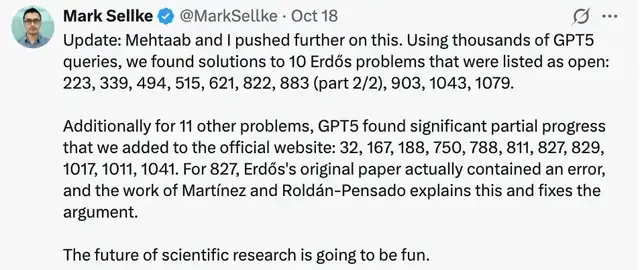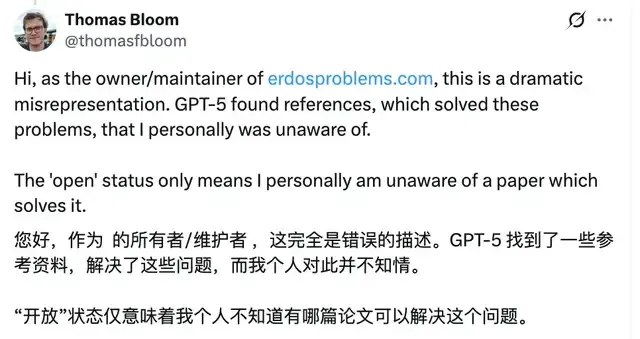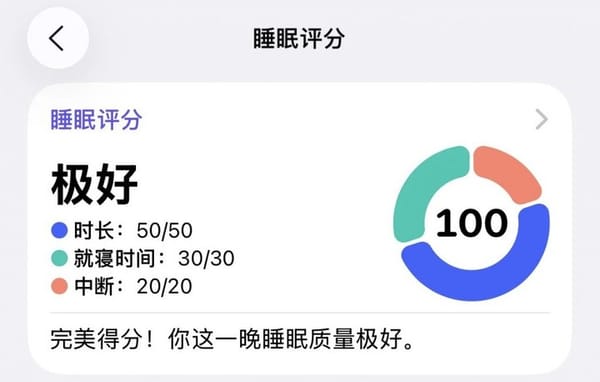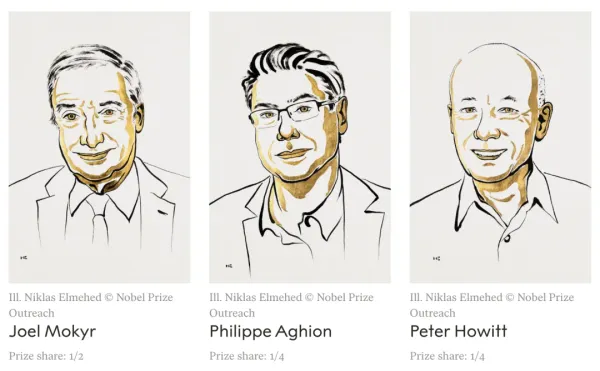OpenAI Thought GPT-5 Made Big Math News, But… Even Hassabis Felt Awkward

Seasonal Dispatch from AoFeiSi
Quantum Bits | WeChat Official Account QbitAI
---
GPT‑5’s “Math Breakthrough” — and the Backfire
Over the weekend, OpenAI promoted what sounded like a mathematics milestone — GPT‑5 had reportedly “solved” several long‑standing Erdős problems.
But within hours, the claim unraveled.
Industry peers called it overhyped marketing, with OpenAI accused of blowing a small achievement out of proportion.
---
Public Reactions
- Demis Hassabis (DeepMind CEO) openly mocked the claim: “This is embarrassing.”
- Yann LeCun (Meta AI Chief) joined in, quick to highlight the weaknesses.

---
How the Claim Started
OpenAI researcher Mark Sellke posted on X:
> After thousands of GPT‑5 queries, we found solutions to 10 Erdős problems marked “unsolved”: 223, 339, 494, 515, 621, 822, 883 (Part II), 903, 1043, 1079.
> Also, 11 other problems saw partial progress. We found an error in Problem 827’s original paper — later confirmed by Martínez and Roldán‑Pensado.

Other OpenAI leaders amplified the announcement:
- Kevin Weil: “GPT‑5 found solutions to 10 previously unsolved Erdős problems…”
- Sebastien Bubeck: “The era of AI‑powered scientific acceleration has officially begun!”
---
The Internet Buzz — and Reality Check
The announcement led many to believe GPT‑5 had independently cracked decades‑old math challenges.
Immediate Pushback
- Demis Hassabis replied under Bubeck’s post:
- > “This is really embarrassing!”

Thomas Bloom, maintainer of erdosProblems.com, clarified:
> The “unsolved” label only meant I hadn’t found the published solutions yet — not that mathematicians hadn’t already solved them. GPT‑5 simply located existing papers via search.

---
Retraction
Bubeck deleted his post and wrote:
> We simply found solutions already in the literature — nothing novel. Literature search is hard, and AI can help with that.
LeCun summed it up:
> “Their GPT hype backfired badly.”
---
Understanding the Misstep
In short:
- What GPT‑5 did: Retrieve known solutions faster than a human.
- What it didn’t do: Invent new mathematical proofs.
The incident is a cautionary tale: misleading framing jeopardizes credibility.
---
Why Context Matters in AI Achievements
Large language models excel at:
- Literature searches
- Synthesizing complex data
They don’t automatically deliver novel discoveries.
Tools like AiToEarn官网 could help:
- Integrate AI‑driven content generation
- Streamline multi‑platform publishing (Douyin, Kwai, WeChat, Bilibili, Facebook, Instagram, YouTube, etc.)
- Track and analyze reach and impact
Such ecosystems ensure clear documentation and communication, avoiding hype‑driven misinterpretations.

---
Past GPT‑5 Math Efforts
The latest misstep wasn’t a total anomaly — GPT‑5 has demonstrated value in mathematical research:
- Terence Tao’s challenge
- Exploring lcm(1, 2, …, n) in relation to highly abundant numbers.
- Without AI, coding/debugging would have taken hours.
- Quantum complexity theory
- Generated useful proof ideas in under 30 minutes.
- Fourth Moment Theorem extension
- Collaborated under expert guidance to produce a quantitative version — a first.

---
The Core Problem
- Ambiguous promotion made audiences think GPT‑5 solved a “hard, unsolved” problem.
- Internal exaggeration amplified the misunderstanding.
- Critics noted the desire to prove worth may have fueled the hype.


---
The Takeaway
The era of “AI breakthroughs every weekend” is fading — audiences are more skeptical.
Without tangible novelty, hype risks backfiring.
Creators working with AI should:
- Showcase authentic impact
- Avoid ambiguous claims
- Use connected platforms to publish and monetize responsibly
Example: AiToEarn官网 — integrates generation, cross‑platform posting, analytics, and rankings so real achievements can be shared widely without misleading audiences.
---
References
- Leading OpenAI researcher announced a GPT‑5 math breakthrough that never happened
- https://x.com/dotey/status/1979640848041071097?s=46&t=fzKJptGJMpr-yj3MUXd6HA
- https://x.com/demishassabis/status/1979417877590774063
- https://x.com/ylecun/status/1979595060447416733




